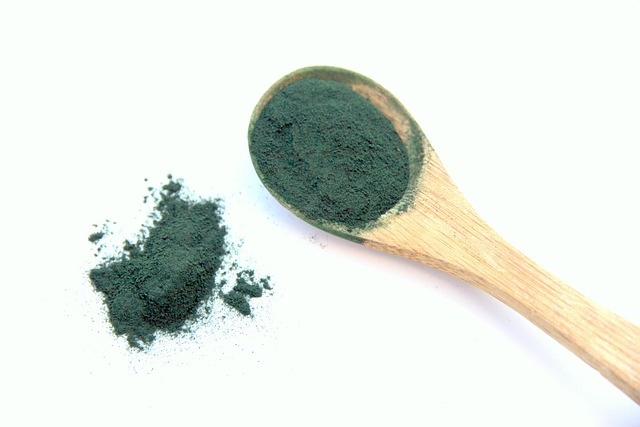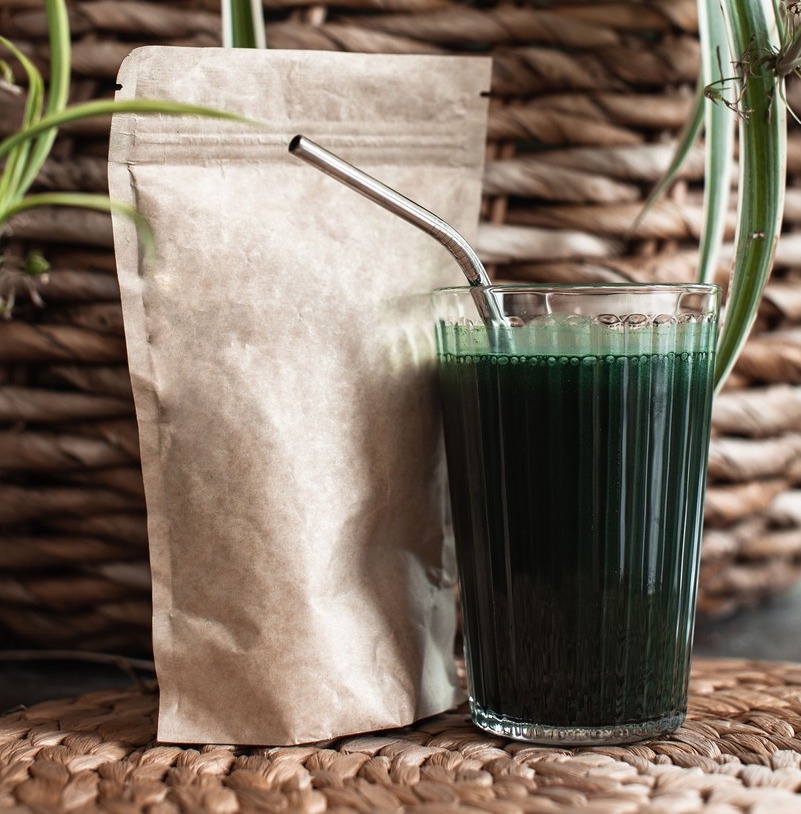Spirulina is the talk of the town. It is said to be a food supplement with innumerable benefits and, what' s more, is rich in protein.
This natural product is therefore often of interest to athletes in search of well-being. But can you swap your whey shaker for spirulina capsules? Or can you combine these two supplements for mass gain or ideal recovery in endurance sports? Spirulina cannot replace protein powder.
Nevertheless, its potential beneficial effects, which have not been scientifically verified, may be useful for those wishing to shape their figure. In particular, this supplement contains a number of vitamins and trace elements useful for athletes.
To date, no studies have shown that combining whey and spirulina would be harmful or dangerous to your health, so the whey and spirulina duo is perfectly feasible. However, athletes should choose whey and spirulina with care.
As with the addition of carnitine to your whey shaker, it's important to opt for pure products, i.e. without additives, but also from responsible, quality crops. This precaution will avoid any undesirable effects.
Contents
What is spirulina?
Spirulina is a group of 36 species of microscopic algae. These plants of the cyanobacteria family are so called because of their spiral shape. Although they have been around for billions of years, they have only recently come onto the market as dietary supplements.
Today, spirulina is available in a variety of forms. It is marketed both in capsule form and as a raw, greenish powder. Spirulina is normally a natural product. It is produced on specialized farms, and no chemical treatment is normally required for packaging.
This supplement has been the talk of the town for some years now. It has numerous benefits for the body and is often presented as an antioxidant and vitality booster. In principle, spirulina is suitable for everyone, from athletes to physical workers.
What does spirulina contain and what are its benefits?
First of all, there is as yet no real scientific consensus on the subject. The benefits of spirulina are still assumed, and several health scandals involving contamination by toxins and heavy metals have tarnished the image of spirulina as a "natural miracle product".
Whatever the case, spirulina has an interesting composition. That's why it attracts so much interest. This algae provides a significant amount of iron. This makes it an excellent supplement for people suffering from mild iron-deficiency anemia, who do not require special treatment. Because of its excellent iron content, this product will also benefit women during menstruation.
Spirulina contains several antioxidant nutrients, including carotenoids (vitamin A) and omega-3s. It also contains DHA and numerous polyunsaturated acids. Phycocyanin, the pigment that gives it its color, also has antioxidant properties. These ingredients give the product its purifying properties, which are particularly beneficial for the liver.
This supplement also contains between 55% and 70% protein and small quantities of essential amino acids. As part of a slimming diet, when losing weight, a high-protein diet gives you the means to sculpt your figure, in particular by preserving muscle mass. The following questions are therefore legitimate: is spirulina an excellent appetite-suppressant slimming product? Can you put your whey isolate packets in the cupboard and replace them with spirulina capsules?

Can whey be replaced by spirulina?
It's a natural question, especially if you're vegan. Wouldn't an organic, raw, protein-rich product ultimately be an excellent alternative to supplement our protein intake? Against all odds, replacing whey with spirulina is simply not an option.
Despite its high protein content, spirulina cannot be consumed in large quantities.
For example, you would need to consume 80 spirulina tablets to absorb around 20 grams of protein, the same amount of protein provided by two eggs, a steak or a dose of whey! Replacing whey with spirulina will therefore ultimately be unimaginable in terms of volume ingested.
On the other hand, the amino acid profile provided by spirulina is not as good as that of whey. Whey is a complete protein with an excellent ratio of essential amino acids & BCAA / total amino acids.
It's the ideal supplement for all sports and bodybuilding. Spirulina, which is a vegetable protein source, will be less rich in BCAAs and EAAs, per 100 g of protein. Its effects on mass gain and muscle development therefore leave much to be desired.
On the other hand, there is little scientific validation of spirulina's claimed benefits. Whey, on the other hand, is scientifically recognized as a healthy ergogenic aid for athletes1.
It therefore makes absolutely no sense to replace whey with spirulina.

Can whey and spirulina be combined?
As with whey and creatine, whey and spirulina can also be combined.
Remember that, in principle, these products are natural. Nor do they contain any particular active ingredients, let alone synthetic or processed ones. Consequently, this combination should present no health hazard.
In this case, the benefits of whey and the virtues of spirulina are fully exploited. Although medical studies on this subject are lacking, this type of use could potentially improve recovery.
Spirulina complements whey's overall effect, notably by reducing oxidative stress and attenuating post-training damage. A combination with whey would therefore not appear to be pointless.
Sportsmen and women can also benefit from its depurative properties. It's also possible to take spirulina tablets as a cure for a week or two. During this period, there's nothing to stop you continuing to take your classic whey.
Use of spirulina in this way is contraindicated if you suffer from kidney or liver disease, muscular pathology or an allergic background.
How to combine whey and spirulina?
Taking whey and spirulina is easy. You can consume this micro-algae whenever and however you like. You can also add it directly to your whey shaker or smoothie. Since the main beneficial effect will be linked to whey, we prefer to take it post-workout.
While these supplements are safe to consume , they do require careful selection. Just as whey may contain additives responsible for various disorders, spirulina may contain heavy metals and dangerous bacterial toxins. So you need to pay close attention to the composition and, above all, the origin of spirulina.
It's crucial to opt for high-quality, 100% pure products. Make the effort to choose food supplements produced within the European Union, or better still, in France. Current regulations are forcing producers to be more meticulous, whether it's protein powder, spirulina or other dietary supplements.













